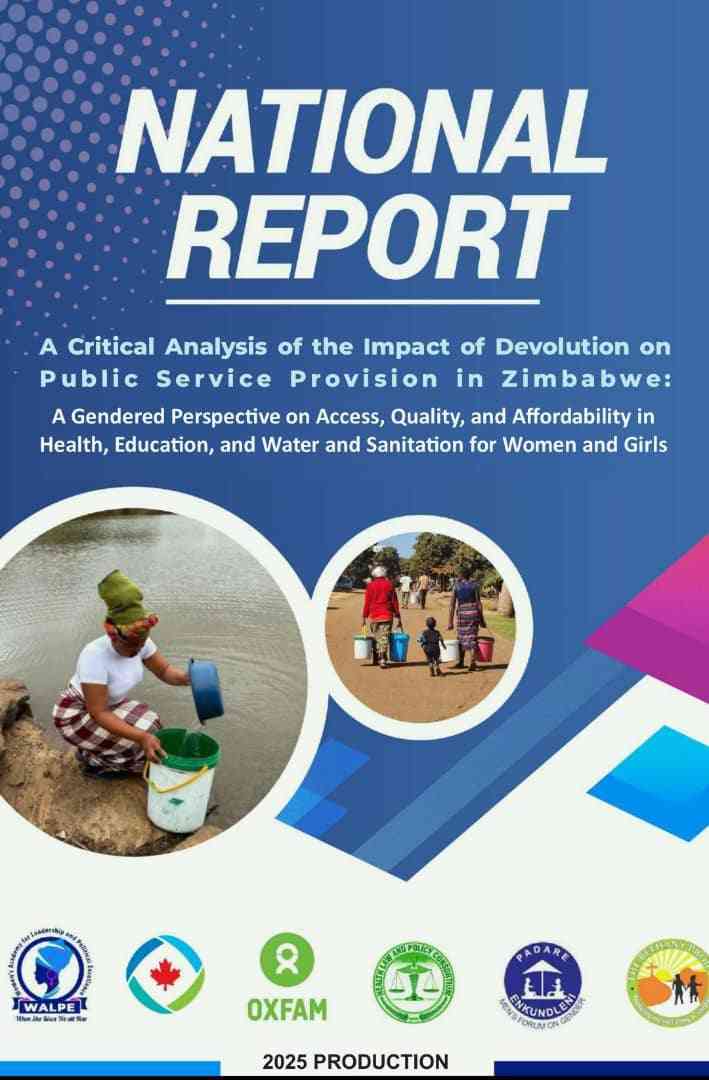
A new report has revealed that Zimbabwe’s devolution programme is still falling short in delivering equitable public services to women and girls, although it is improving local participation in governance to some extent.
The study, titled “A Critical Analysis of the Impact of Devolution on Public Service Provision in Zimbabwe: A Gendered Perspective on Access, Quality, and Affordability in Health, Education, and Water and Sanitation for Women and Girls,” highlights persistent gaps in healthcare, education, water and sanitation sectors.
The report was conducted by the Health Law and Policy Consortium led by Women’s Academy for Leadership and Political Excellence (Walpe), Oxfam Zimbabwe, Padare Enkhundleni Men’s Forum of Gender, the Bethany Project.
According to the report, women and girls remain disproportionately burdened by inadequate service delivery. In healthcare, rural communities face high costs, limited facilities and shortages of essential drugs, leaving many women without adequate maternal and reproductive care.
In education, while girls’ enrollment has improved, poor infrastructure, long travel distances to schools and hidden costs such as levies and uniforms continue to disadvantage female learners.
“Economic barriers mean that many girls still drop out, undermining gains made in gender parity,” shows the report.
Water and sanitation were also found to be major areas of concern with many households, especially in rural areas, relying on unsafe and distant water sources. The responsibility of fetching water largely falls on women and girls, exposing them to health risks and limiting their opportunities for education and income-generating activities.
The report urges government and local authorities to implement gender-sensitive budgeting, ensure equitable resource allocation and strengthen accountability mechanisms under devolution.
- New perspectives: ‘We also died for this country!’
- New perspectives: ‘We also died for this country!’
- Salvation Army partners Padare in GBV fight
- Guruve women yearn for political recognition
Keep Reading
It warns that without deliberate measures, the policy risks entrenching existing inequalities rather than reducing them.
“Devolution presents a real opportunity to transform public service delivery. But unless it is inclusive and responsive to the needs of women and girls, it will remain a missed opportunity.”
Speaking at an online meeting organized by Walpe yesterday, former Member of Parliament Norman Markham noted that there is lack of priority to issues regarding health and women rights.
The meeting was also attended by a Member of Parliament Perseviarance Zhou and the Combined Harare Residents Association’s Vice Chairperson Prudence Hanyani.










